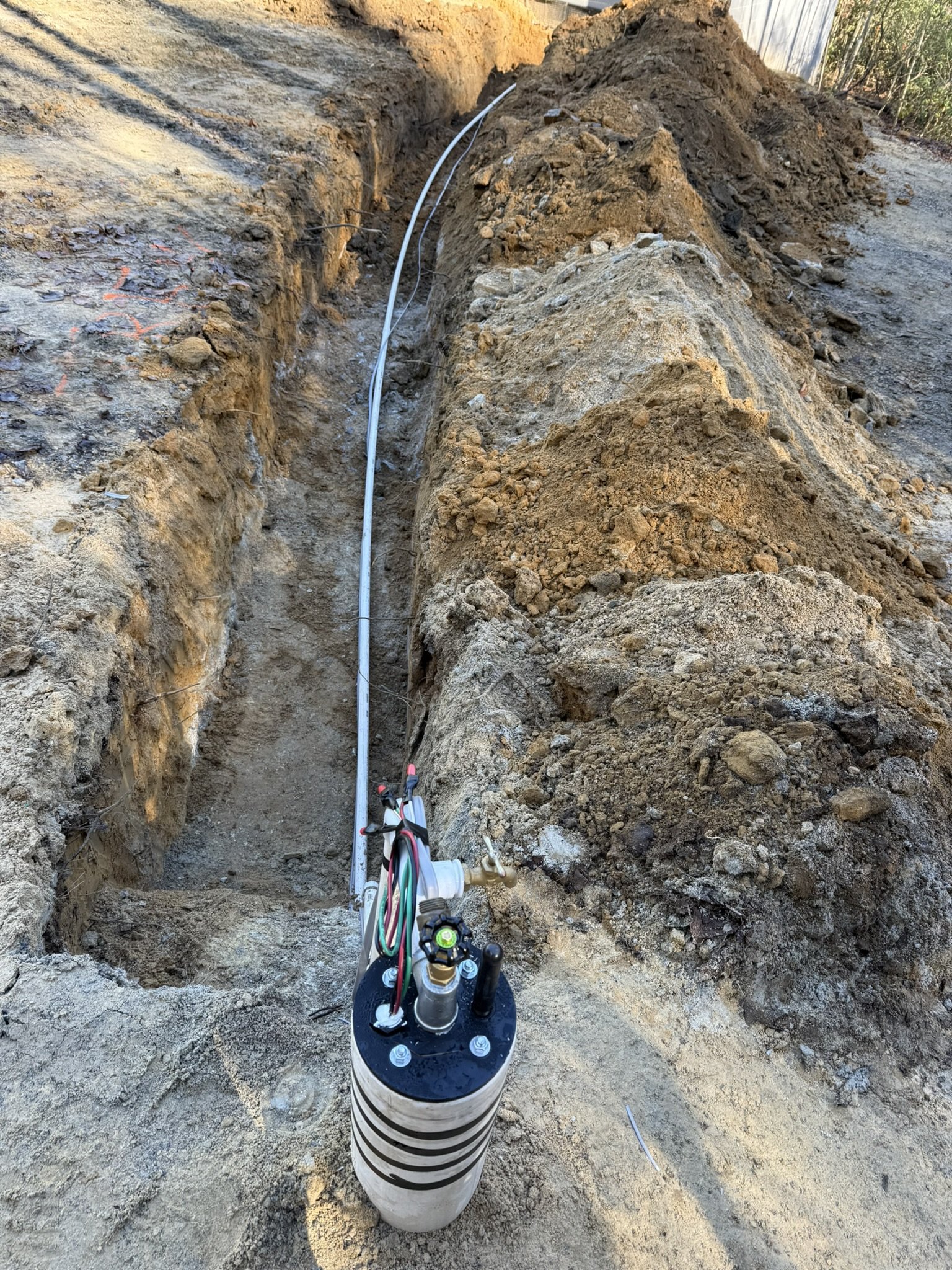
Well & Water
Self-Diagnostics + FAQs
Well & Water Self-Diagnostics:
At Hamilton, we understand the importance of clean, safe, and reliable well water. To assist you in maintaining your well, we’ve created two resources:
Diagnostics: A guide to identifying potential well issues based on common symptoms.
FAQs: Answers to common questions about private wells, regulations, and maintenance.
Important Notice: The information provided in these sections is for general guidance only. Well systems can be complex, and issues may require a professional assessment. These resources are not a replacement for expert evaluation by a licensed well service provider like Hamilton. If you experience ongoing or serious well issues, contact us for a comprehensive assessment of your water system.
Do you have dirty or cloudy water?
A: Dirty or cloudy water can be caused by several factors:
Sediment Buildup: Check for disturbed well water from recent heavy rain or drilling activities.
Well Casing Damage: A damaged casing may allow surface contaminants to enter.
Pump Issues: A failing pump can stir up sediment from the well bottom.
Solution: Have your well inspected, test for contaminants, and consider installing a sediment filter.
Is your water discolored (brown, red, or yellow)?
A: Discoloration may indicate:
Iron or Manganese: Can cause rust-colored stains in sinks and laundry.
Tannins from Organic Matter: More common in shallow wells near wetlands.
Solution: Test water for minerals and install an iron filter or water softener if necessary.
Has your water developed an unusual taste or smell recently?
A: Potential causes include:
Bacterial Contamination: May result from well casing cracks or flood contamination.
Chemical Contamination: Pesticides or industrial runoff could be seeping into your well.
Solution: Test for bacteria and chemicals, and disinfect your well if necessary.
Is your water pressure low?
A: Low pressure can result from:
Pump Malfunction: A failing pump may not supply adequate water.
Clogged Pipes or Filters: Sediment buildup can reduce flow.
Well Depletion: Water levels may be dropping due to drought.
Solution: Check pump operation, clean or replace filters, and monitor water levels.
Do you hear strange noises coming from your well equipment?
A: Noises may indicate:
Air in the System: Caused by a failing pump or low water levels.
Worn Pump Components: Bearings or impellers might be wearing out.
Solution: Have a professional inspect the pump and well system.
Does your water have a metallic taste?
A: A metallic taste is commonly caused by:
High Levels of Iron, Copper, or Zinc: Often from old plumbing or naturally occurring minerals.
Solution: Conduct a water test and consider a water softener or reverse osmosis system.
How often should I perform maintenance on my well?
A: It is recommended to:
Inspect your well annually for mechanical issues.
Test your water yearly for bacteria, nitrates, and pH levels.
Perform professional well maintenance every 2-3 years.
Do you notice a rotten egg smell in your water?
A: A sulfur-like odor usually means:
Hydrogen Sulfide Gas: Produced by bacteria in the well.
Decaying Organic Matter: Found in some groundwater sources.
Solution: Shock chlorinate the well and install an aeration or carbon filtration system.
Once you’ve narrowed it down ↠
FAQs - Frequently Asked Questions:
This FAQ section provides general information about private well installation, maintenance, and regulations in North Carolina. While these answers can help guide you, each well system is unique. Compliance with county regulations and proper maintenance require expert assessment. If you have specific concerns, Hamilton is here to help.
Q: What is required to install a private well?
A: North Carolina law requires counties to have well permitting, inspection, and testing programs to ensure wells are properly constructed, repaired, and abandoned. These programs protect groundwater quality and public health.
Q: Why do I need a permit to construct or repair my well?
A: A permit ensures proper well placement and construction to prevent contamination. It is also required by North Carolina General Statute 87-97.
Q: How much does a permit cost?
A: Permit fees vary by county. They cover the cost of processing, site visits, water testing, and compliance checks. Contact your local health department for specific pricing.
Q: How do I get a permit to construct or repair my well?
A: Contact your county health department and complete a permit application.
Q: What should I do with an old, unused well?
A: Abandoned wells must be properly sealed to prevent groundwater contamination. You may need to repair it or officially abandon it by filling it with cement or bentonite grout.
Q: Do I need a permit to abandon my well?
A: Yes, state rules require a permit for well abandonment to ensure proper procedures are followed. Most counties do not charge a fee for abandonment permits.
Q: Who should I contact if I think my well water has quality issues?
A: Contact your county health department. They provide water quality testing for a fee.
Q: How far should my well be from my septic system?
A: North Carolina requires a minimum of 100 feet of separation. If space is limited, some single-family wells may be approved at a minimum of 50 feet with county approval.
Q: How far should my well be from my house?
A: The minimum required setback distance from a house is 25 feet. Counties may enforce additional restrictions for groundwater protection.
Q: What is the difference between state and county well rules?
A: State rules (15A NCAC 02C) set the minimum standards for well construction, but some counties have stricter regulations to further protect groundwater.
Q: Do I need a permit for a well used for heating, cooling, or irrigation?
A: Private drinking water wells require a permit. Other types (e.g., geothermal or irrigation wells) may require additional permits from the Division of Water Quality.

